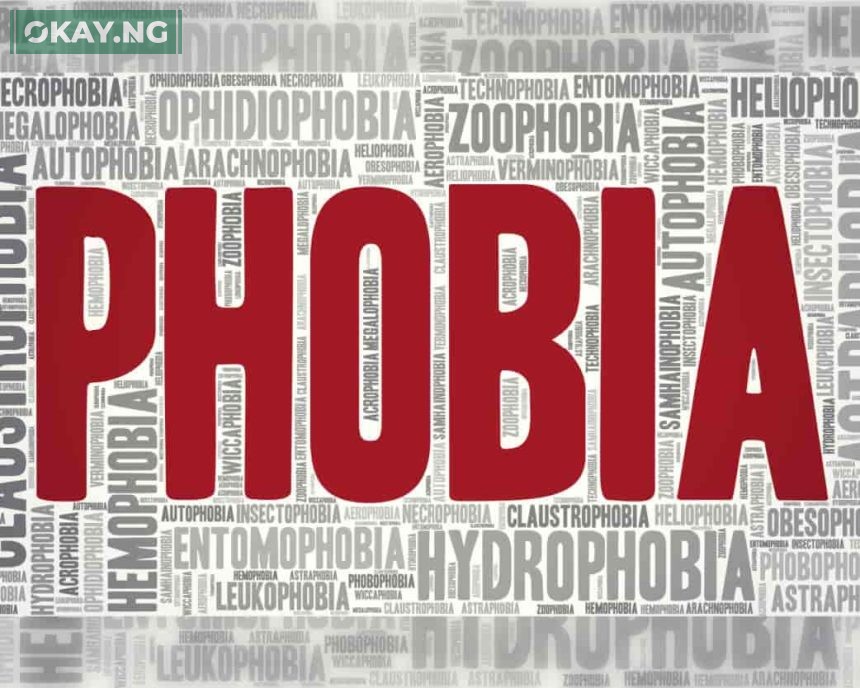Phobias are a type of anxiety disorder that causes intense and irrational fear of specific objects, situations, or environments.
People with phobias may experience physical and emotional symptoms such as sweating, trembling, nausea, and panic when they encounter or think about their phobia.
Phobias can interfere with a person’s daily life and well-being, making them avoid or dread certain situations or things.
In this article, we will explore some of the most common and rare phobias, as well as answer some frequently asked questions about phobias.
Common Phobias
According to the American Psychiatric Association, there are three main categories of phobias: specific phobias, social phobia, and agoraphobia.
Specific phobias are fears of particular objects or situations, such as animals, heights, blood, or flying. Social phobia, also known as social anxiety disorder, is a fear of being judged, embarrassed, or rejected in social situations. Agoraphobia is a fear of being in places where escape is difficult or help is unavailable, such as crowded areas, public transportation, or open spaces.
Some of the most common phobias in each category are:
- Arachnophobia: Fear of spiders.
- Ophidiophobia: Fear of snakes.
- Acrophobia: Fear of heights.
- Aerophobia: Fear of flying.
- Cynophobia: Fear of dogs.
- Trypanophobia: Fear of needles or injections.
- Claustrophobia: Fear of enclosed or small spaces.
- Mysophobia: Fear of germs or dirt.
- Glossophobia: Fear of public speaking.
- Anthropophobia: Fear of people or social situations.
- Agoraphobia: Fear of being in places where escape is difficult or help is unavailable.
Rare Phobias
There are hundreds of phobias that have been identified and named, some of which are very rare and unusual. Some of the rarest phobias are:
- Ablutophobia: Fear of bathing or washing.
- Alektorophobia: Fear of chickens.
- Allodoxaphobia: Fear of opinions or criticism.
- Bibliophobia: Fear of books.
- Chromophobia: Fear of colors.
- Ephebiphobia: Fear of teenagers or youth.
- Genuphobia: Fear of knees or kneeling.
- Hippopotomonstrosesquippedaliophobia: Fear of long words.
- Nomophobia: Fear of being without a mobile phone or signal.
- Xanthophobia: Fear of the color yellow or the word yellow.
Frequently Asked Questions About Phobias
Here are some of the most common questions people have about phobias and their answers.
How are phobias different from ordinary fears?
Fear is a natural and adaptive response to perceived threats that helps us survive and avoid harm. Phobias, on the other hand, are excessive and persistent fears that are out of proportion to the actual danger posed by the object or situation. Phobias cause significant distress and impairment in a person’s functioning, making them avoid or escape from their phobia at all costs. People with phobias usually recognize that their fear is irrational, but feel powerless to overcome it.
What causes phobias?
There is no single cause of phobias, but rather a combination of biological, psychological, and environmental factors that may contribute to their development. Some of the possible causes are:
- Genetic predisposition: Some people may inherit a tendency to be more anxious or fearful than others, making them more vulnerable to developing phobias.
- Temperament: Some personality traits, such as being shy, sensitive, or perfectionistic, may increase the risk of developing phobias.
- Traumatic experiences: Some phobias may stem from a negative or frightening event that involved the object or situation, such as being bitten by a dog, getting stuck in an elevator, or witnessing a car accident.
- Learned behavior: Some phobias may be learned from observing or hearing about others’ reactions to the object or situation, such as seeing a parent or sibling being afraid of spiders, or hearing stories about plane crashes.
- Cognitive factors: Some phobias may be influenced by faulty or distorted thinking patterns, such as overestimating the likelihood or severity of harm, or underestimating one’s ability to cope.
How are phobias diagnosed?
Phobias are diagnosed based on the criteria of the Diagnostic and Statistical Manual of Mental Disorders (DSM-5), which is the standard reference for mental health professionals. To be diagnosed with a specific phobia, a person must meet the following criteria:
- The person has a marked and persistent fear of a specific object or situation that is excessive or unreasonable.
- The object or situation almost always provokes an immediate fear or anxiety response.
- The person actively avoids or endures the object or situation with intense fear or anxiety.
- The fear or anxiety is out of proportion to the actual danger posed by the object or situation.
- The fear or anxiety causes significant distress or impairment in the person’s social, occupational, or other areas of functioning.
- The fear or anxiety is not better explained by another mental disorder, such as obsessive-compulsive disorder, post-traumatic stress disorder, or panic disorder.
How are phobias treated?
Phobias can be effectively treated with various forms of psychotherapy, medication, or a combination of both. The most common and evidence-based form of psychotherapy for phobias is cognitive-behavioral therapy (CBT), which aims to help the person identify and challenge their irrational thoughts and beliefs about their phobia, and gradually expose them to their feared object or situation in a safe and controlled manner. Exposure therapy is a specific type of CBT that focuses on confronting the phobia through repeated and prolonged exposure, either in real life or through imagination, until the person’s fear and anxiety decrease. Other forms of psychotherapy that may help with phobias include acceptance and commitment therapy (ACT), mindfulness-based therapy, and hypnotherapy.
Medication may also be prescribed to help reduce the symptoms of anxiety and panic associated with phobias. Some of the common types of medication used for phobias are:
- Antidepressants: These medications can help regulate the mood and balance the brain chemicals that are involved in anxiety and fear. Some examples are selective serotonin reuptake inhibitors (SSRIs), such as fluoxetine (Prozac), sertraline (Zoloft), and escitalopram (Lexapro), and serotonin-norepinephrine reuptake inhibitors (SNRIs), such as venlafaxine (Effexor) and duloxetine (Cymbalta).
- Benzodiazepines: These medications can help reduce the physical and emotional symptoms of anxiety and panic by enhancing the effects of a brain chemical called gamma-aminobutyric acid (GABA), which has a calming effect. Some examples are alprazolam (Xanax), clonazepam (Klonopin), and diazepam (Valium). However, these medications can be addictive and cause side effects such as drowsiness, memory problems, and withdrawal symptoms, so they are usually prescribed for short-term use only.
- Beta-blockers: These medications can help block the effects of adrenaline, a hormone that is released during stress and fear, and reduce the physical symptoms of anxiety and panic, such as rapid heartbeat, sweating, and trembling. Some examples are propranolol (Inderal), atenolol (Tenormin), and metoprolol (Lopressor). These medications are usually taken before a specific situation that triggers the phobia, such as flying or public speaking.
The best treatment for phobias depends on the type, severity, and impact of the phobia, as well as the person’s preferences and goals. A mental health professional can help assess the person’s condition and recommend the most suitable and effective treatment plan.













